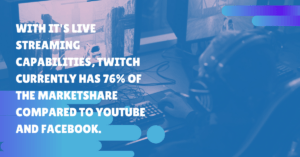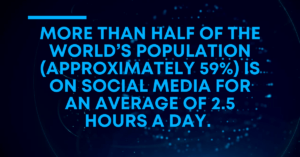If you haven’t heard, the way the web works is about to see big changes thanks to a new regulation by the European Union. The EU’s General Data Protection Regulation, or GDPR, is slated to take effect May 2018 and it’s likely going to change the way advertising works on the internet.
What is the GDPR?
The GDPR is a new EU law on data protection and privacy that addresses the export of personal data outside the EU. The regulation aims to give control back to citizens over their personal data. Any company, no matter where it is located, needs to comply with the new regulations if they are handling EU data.
According to Wired’s deep dive, “Europe’s new privacy law will change the web, and more,”
[Under the GDPR] companies must be clear and concise about their collection and use of personal data like full name, home address, location data, IP address, or the identifier that tracks web and app use on smartphones. Companies have to spell out why the data is being collected and whether it will be used to create profiles of people’s actions and habits. Moreover, consumers will gain the right to access data companies store about them, the right to correct inaccurate information, and the right to limit the use of decisions made by algorithms, among others.
The law protects individuals in the 28 member countries of the European Union, even if the data is processed elsewhere. That means GDPR will apply to publishers like WIRED; banks; universities; much of the Fortune 500; the alphabet soup of ad-tech companies that track you across the web, devices, and apps; and Silicon Valley tech giants.
Most of the digital rights under the GDPR were already established in the EU. However, most of them went unenforced.
What this means for advertising and web traffic
Ultimately, the GDPR means its about to get harder to target consumers through traditional social advertisements. Many traditional ad-tech companies are reconsidering how they are going to work in the EU as a result of the regulation. According to Wired, Drawbridge, an ad-tech company that tracks users across devices, has said it’s going to wind down business in Europe because it’s unclear how consumer consent will be ensured after the regulation goes into place.
There’s a lot of uncertainty about what will happen in the future. Companies are now asking what personal data is being tracked and how they will be able to stay in the clear once the new regulations take effect.
We’re still betting on influencers
What this does mean, is that nontraditional channels of marketing are still a safe bet. Moving away from data and instead focusing on influencer marketing means your brand will be able to find its audience without infringing on the GDPR.
Influencers speak to their audience without cookies or data points. They find them on many devices without infringing on privacy rights. As more companies look to stay in the clear of bad regulations, influencer marketing could be the solution.







